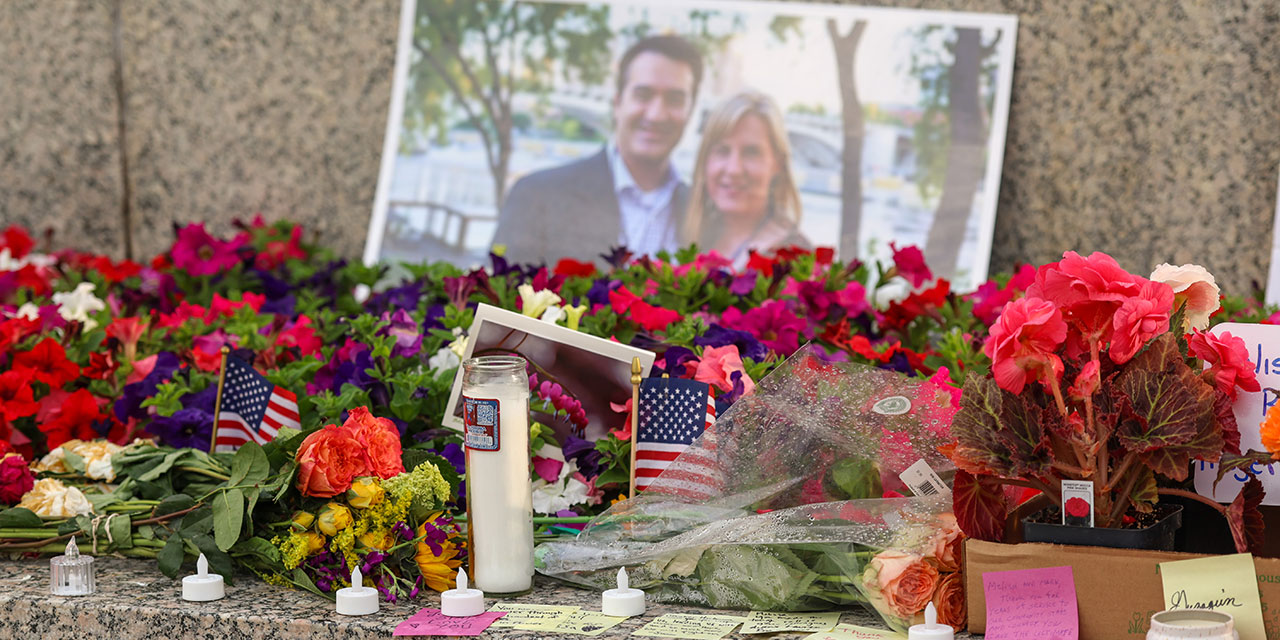
Very early Saturday morning, Minnesota state representative Melissa Hortman and state senator John Hoffman—both members of the state’s Democratic party affiliate—were shot, along with their spouses, by a man posing as a police officer. Hortman and her husband Mark died; Hoffman and his wife Yvette, though both shot multiple times, have survived. After a two-day manhunt, police captured the alleged killer, Vance Boelter, who now faces murder charges.
Though the details about motive remain patchy, the emerging picture is of yet another politically motivated murder—a right-wing killer targeting left-wing leaders. Boelter was reportedly a fervent supporter of President Donald Trump and passionately opposed to abortion. Police have revealed that his target list included other Democratic lawmakers, as well as several Planned Parenthood facilities.
Finally, a reason to check your email.
Sign up for our free newsletter today.
The Minnesota murders, then, are part of the broader wave of political violence—fire bombings, riots, and homicides—that has swept the country over the past six months. Leaders on the right should condemn them with exactly the same force as they have the many violent incidents perpetrated by left-wing criminals, making it clear that there is no partisan valence to opposing murder.
Right-wing political violence is not without precedent, of course. It was a significant problem through the 1990s, most visibly in the 1995 Oklahoma City bombing, the deadliest act of domestic terrorism in U.S. history. Anti-abortion violence, too, has a sordid history, including Eric Rudolph’s bombing of the 1996 Olympics in Atlanta and the 2009 murder of abortion provider George Tiller.
The past decade has seen several instances of right-wing violence: the attack on Nancy Pelosi’s husband, Paul; the pipe bombs mailed to Democrats in 2018; and the riot in the Capitol on January 6, 2021.
These incidents all had ideological predicates. The mastermind of the Oklahoma City bombing, Timothy McVeigh, was inspired by a radical anti-government ideology, enflamed by the tragedies at Waco and Ruby Ridge. Rudolph was similarly motivated by his hatred of what he saw as socialistic government advancing “abortion on demand.” Both men had connections to white supremacists.
More recent incidents lack the same ideological subtlety. They seem driven by general hatred of Democrats and, specifically in the case of the Capitol riot, Trump’s charges about the 2020 election being stolen. It’s still too early to say whether Boelter was influenced by any of these ideas, but it would not be a surprise to learn that one or more was relevant.
It would be pointless to tally up these incidents against recent bouts of left-wing violence and try to judge which “side” has more of a problem. Both do. More importantly, leaders on both sides have an interest in speaking out against political violence, if for no other reason than to protect themselves against it.
The first step in fulfilling that task is to offer no defense of or apology for political violence. President Trump’s statement on the incident—which made clear that “such horrific violence will not be tolerated in the United States of America”—is a model to be followed.
It goes from there into action. Boelter’s alleged crime occurred in a state that has—foolishly—abolished capital punishment. Current federal law and the nature of the offense probably limits the Department of Justice’s ability to step in (though the use of a firearm creates a possible avenue for the federal government). Minnesota should certainly pursue the toughest sentence available and consider restoring the death penalty. Congress should consider expanding 18 USC 351, which criminalizes the murder of high-ranking federal officials, to cover state officials as well (at least where their activities touch on federal matters).
As I argued in the case of the D.C. Jewish Museum murders and the Molotov cocktail attack in Boulder, law enforcement needs to ask whether Boelter was truly a lone wolf—or whether his alleged actions were the result of ideas or plans proposed to him by fellow domestic extremists. Each act of violence creates the opportunity and mandate to investigate whether further criminal activity preceded it, and whether other extremists have crossed the line into illegal activity or stand ready to do so.
The murders in Minnesota remind us that political violence knows no partisan allegiance. As a corollary, however, politicians of all stripes need to be unambiguous in their denunciation of it—and equally ferocious in their suppression of it.
Photo by Steven Garcia/Getty Images
City Journal is a publication of the Manhattan Institute for Policy Research (MI), a leading free-market think tank. Are you interested in supporting the magazine? As a 501(c)(3) nonprofit, donations in support of MI and City Journal are fully tax-deductible as provided by law (EIN #13-2912529).
Source link
















